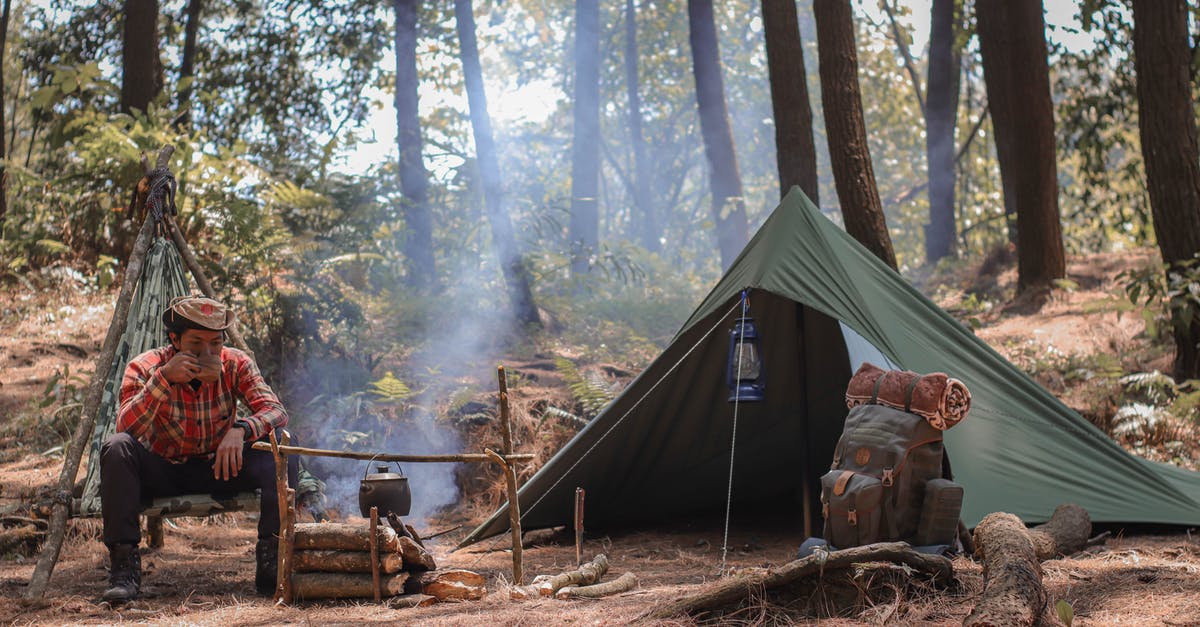How to survive a timeshare promotional trip?

Earlier this week my fiancé called Hilton to change an existing reservation and in the process was roped into booking a 3-night stay in Orlando for $99, as long as he agrees to sit through a 2-hour presentation. They say there are no blackout dates. It's a great deal, but I am always skeptical of these timeshare promotional trips. Searching online, it seems like many people have had bad experiences with these types of trips and consider them a scam. Common complaints are aggressive marketing tactics, hidden fees, and "gotchas" in the contract that void the promotional price.
Seeing as this trip is already paid for and non-refundable, we are very likely to take it. I trust Hilton much more than I do many other timeshare companies, but I am still very wary. How can we get through this trip while avoiding spending more than what we agreed to? In particular I'm looking for common hidden fees, things that would void our discounted price, and ways to get through the marketing pitch without purchasing anything (though that last one is likely off-topic here). I know you can't tell me what's in my contract, but I want to know what types of things I should be looking for or asking about.
While my situation is specifically with Hilton Grand Vacations, I'm looking for advice that applies to timeshare promotional trips in general.
Best Answer
I was originally going to make this a comment, but I think my personal experience will showcase some of the tactics and how to recognize them and avoid them.
But first off, be skeptical and say no.
I once attended a timeshare presentation in Ft Lauderdale. Due to a previous hurricane I actually had a free plane ticket to burn, so it didn't cost me anything to get there.
I arrived early and the receptionist thought I was one of the sales people who was running late. So I was ushered into the pre-work day sales pep meeting. And all I can say is that the guy leading it was amazing. As I walked in he used me as a example of what could be achieved. After asking me my name he instantly turned to the crowd of sales people and started telling my (invented) backstory to them of how I had come down from Pittsburgh (a lie) to earn money to support my wife and kids (a lie - I was single), and how I was here to make a go of things (a lie). It was a great show and I was really impressed about how much lying this guy could do with a smile on his face. That set the tone for the rest of the experience. (I left the meeting before it ended)
Eventually I was assigned a sales guy who assured me that he was not on commission and didn't mind if I wasn't interested in buying a timeshare.
He drove me in his flashy convertible to see the model timeshare unit. On the way back to the office he absent mindedly gestured to another building and said "that's where your unit would be". It was 12 hours later that I actually realized that that was a "bait and switch".
Back at his desk he told me that he had the perfect 2 weeks just waiting for me. I remembered that there were 200 to 300 people who had come to see the sales presentation and that this basically ran 7 days a week. So with that many people being offered slots and only 52 weeks in the year I was skeptical about him having "the perfect two weeks".
He then profited up a $$ amount for yearly fees etc. I looked at the what was required, and how much it was going to cost me to get there and came up with a more practical, but much higher $$$ per year amount. He basically denied my analysis to my face, and obviously didn't care what I thought about my own finances.
As I was obviously moving away from buying, he started out with a whole bunch of subtle statements that were designed to punch my buttons. He questioned my financial ability to pay, he questioned my masculinity in not being able to make a decision. And finally he even offered me women if I signed on the dotted line. I was amused by the list he went down as tried to find anything that would make me act.
Finally after it was obvious that I wouldn't sign, he face took on this angry look, he swore under his breath and he stormed off from me. So much for him not being on commission. I had obviously wasted too much of his time and had cost him $$.
And then as I left the main sales office I entered a secondary office where I was asked "Did you forget something?". When I asked what they meant, they said something like "Did I forget to buy a timeshare", and then they jumped into a sales pitch of the timeshares that people were trying to get out of. These offerings seemed to be a steep discount over the "new" prices. So if you are actually interested, discounts are possible.
So to cap it off:
- Be skeptical
- They will lie to your face
- Say no
- And once again, say no.
And remember that there is a whole marketshare of companies that are helping people to get out of timeshare commitments. If they were so good then that market wouldn't exist.
Aside from all that, enjoy the freebies.
Totally unrelated anecdote from this same trip. I was at the desk of the hotel chatting with the receptionist when this other guest came up to the desk and started chatting too. I'm from Australia and this other guy was from the UK. The receptionist looked at us and said "I can't tell you two apart". We both looked at each other and instantly burst out laughing. I'm pasty white and this other guy was several inches taller than me and black.
Pictures about "How to survive a timeshare promotional trip?"



Quick Answer about "How to survive a timeshare promotional trip?"
How do you survive a timeshare sales pitch?
Tips on How to Survive a Timeshare PresentationWhat should you not do in a timeshare presentation?
Fifteen minutes before the timeshare presentation is scheduled to end, give them warning that you will leave. Give out as little personal information as possible. Do not give timeshare sellers your cellphone, home, or work phone numbers, nor your main email address. If they insist, provide fake numbers.What do you say to get out of a timeshare presentation?
1. Re: Best excuse to get out of a timeshare presentation. Best excuse is look em in the eye & firmly say "no thank you or no gracias." If they still go after you say "excuse me but what part of no thank you or no gracias did you not understand?" You are in charge. Just be nice but firm.Is it worth going to a timeshare presentation?
Even still, there are times when sitting through a timeshare presentation can be worth your while. You can find good timeshare deals on offers for discounted stays, free nights and more online \u2014 or get offers through phone calls or targeted emails. In some cases, you might decide the savings are worth it.How to Survive a Timeshare Presentation 🚫⌛
More answers regarding how to survive a timeshare promotional trip?
Answer 2
My approach is to not feed them anything to work with. When I have been to one of those deals, my only commitment was to attend the presentation, not to supply any information or discuss anything.
Questions about myself and my situation get response "Please continue with your presentation.". Actual sales questions get "No". If asked why not, back to "Please continue with your presentation."
They plan to spend some time in relationship-establishing conversation, getting information about the target's finances, and overcoming objections. If you strictly limit the interaction to their actual presentation the sales person may run out of material in less than 2 hours.
Answer 3
I have gone through quite a few of these. The easiest thing to do is do a little research in the area that you are going.
Then during the selling phase:
Do not go into any private room to talk one on one alone with anyone. Simply say, I prefer that we talk "out here" or "in public".
Remain very unimpressed with the property, setup, rate, everything. It is really easy to kill the conversation by saying "I really wouldn't want to come back here, not sure I could get renters, I am not impressed with the property."
And the reason I said do homework... If you know a couple of rates or selling prices of properties nearby and do the math most of the time you will see a 2-5 times markup for the timeshare. By staying in the group or out in public most of the time the sales manager (there is always a boss and it can be someone who is selling to) will pull your sales person aside and tell them to get you out of there. The last thing they want is someone who hates the property sending negative vibes to others. Boom you are done. I have never been hassled for 15 minutes after any presentation - and some of the properties I actually liked.
Answer 4
...and finally, be aware that the free thing you will get may technically fit the description you were promised but may not be what you are expecting.
A friend of mine sat through a 3 hour high pressure sales talk to get a "home entertainment system", to finally be reluctantly given a crappy pressed metal tea tray with some equally crappy platters and condiment pots. "It's a system for entertaining," he was told.
Remember the old saying, "Rolls-Royce don't advertise". The worse the product, the more it has to be sold using these techniques. Why would you put yourself through it?
Answer 5
Adding to what abelenky said, remember you don't always have to do the logical thing -- they can show you that it's completely logical, you can even agree with them, and still refuse to buy. Why? Because you can do whatever you want, whether it's logical or not. You don't need to offer any explanations for not buying. (At this point, they will probably say something like, I don't understand, but it's their job to not understand the word "no".)
As far as questioning your masculinity for not making a decision, just point out you have already made a decision -- just not the one they wanted.
And it is common practice to have both the husband and wife there -- if the husband can't be convinced to want it, maybe they can convince him the wife does want it, and he should say yes for her -- while simultaneously doing the same with her.
Maybe you should have a list of questions you could ask each other, all to be answered no. Such as, "did you catch the game last night?" "No." Have a series of these lined up, and when the pressure gets intense, start the dialog. It will increase your resolve to not buy anything.
Answer 6
Set a 2 hour timer on your phone, when it goes off stand up and walk out. Job done.
As others have said: leave your wallet behind, sit through the presentation, rebuff any questions, avoid one-on-one sessions, politely say no.
Answer 7
There is a single question that you can. and should answer here and now. This one question concludes everything else: Do you want to do timesharing?
If the answer is "no" (which is likely the case, given your question), then everything else is inconsequential. You have no obligation to do something you don't want, and you should never do something you don't want, no matter what someone says, or what good reasons they might bring up.
This sounds quite obvious and superfluous to say, but that's really all to it.
To take advantage of the "special offer", you (your fiancé) have agreed to attend a 2-hour promo. Since you said "called", do you actually have this in writing? If not, absolutely make sure you do, and before the trip. You do not want to discuss the terms, surprise fees, and what was said and wasn't, and what you apparently didn't understand properly in retrospective. That's a very bad situation to avoid.
You want exact conditions, written on paper, before going. Every not totally fraudulent company will give you these (even though, unluckily, they are not strictly required to do it in your case, phone deals are exepted from the rule that says they must).
Then, if you want to do the trip and avoid extra cost, you will have to comply with the agreed terms as written, to the letter. That is, you need to attend this presentation for the full 2 hours. But you do not need to do anything more, and in particular you do not need to agree to, buy, or sign anything. You don't need to become the sales person's friend either (secret tip: you're not anyway).
Since you want the "special offer", you must look at / listen to what they show / tell you, that's the agreement. But you need not disclose anything about yourself, or discuss with them, or even buy something.
Any kind of discussion is, from your point of view, detrimental. There is nothing you can win. You do not want to buy something, you've already decided that. You do not need to "prove" that to yourself or anyone else. On the other hand, you are certain to lose a discussion against an experienced salesman specifically trained for the task. Thus, the best thing you can do is avoid discussions.
But even if you get into a discussion (you probably will, very few people manage to be impolite enough to avoid them), and you lose the discussion insofar as you would be a complete idiot if you didn't take that great offer... you can, and should, still say "no".
You have the right to be an idiot and lose out on the greatest ever offer. There needs not be any reason for that other than "Because. I don't want.". You can say that more politely or less politely, as long as it remains "no", it's all the same. Again, you're not intending to become the sales person's friend.
Also, never, never ever, follow them into their office. Stay in the hotel's meeting room or whereever the crowd is. Not only will a one to one session be a lot more stressing, also see last paragraph below for a good reason.
I personally deem the advice to leave your credit card and wallet in the safe a bad approach. It's like going to a bar when you are an alcoholic. Leaving the gin bottle at home won't prevent you from drinking, if you go to a bar. You must either have an ironclad will, or you must not go to the bar in the first place.
On the one hand side, you can sign a binding contract just fine without your wallet, so it doesn't truly protect you. In the strictest sense, even saying "yes" without signing a contract is a contract (though it is unlikely a company like Hilton will attempt to enforce that). To be on the safe side, just don't say "yes", ever.
On the other hand, if you know that you are so suggestible (read as: weak) that you believe you might otherwise (if you had your wallet) sign something although you decidedly don't want it, then by all means do not go there. Don't. That's a lost cause.
If you are unsure, scratch the offer, consider the $99 that you already paid forfeited, all in all this will come a lot cheaper.
If, despite all, you later find out that you were silly enough to sign up anyway, hand in a cancellation note within at most 3 business days. Actually, if the contract is signed in Florida (but be careful about place of jurisdiction!) you should have 10 days, but do not needlessly tempt your luck. Better be safe than sorry, do it within 3 days.
Do not do this on the phone, do not talk, do not discuss. You will lose the discussion. Written on paper, handed over with a witness (registered mail will work, too). You need undeniable, hard evidence of having handed in cancellation.
Also relevant: 16 CFR 429.0, 16 CFR 429.1. Note the wording "place other than the place of business of the seller (e.g., [...] hotel or motel rooms, convention centers, ...".
Answer 8
I would recommend leaving your wallet (and chequebook, and phone if you use internet banking) in the hotel safe when you go to the presentation. As well as forcing you to stop and consider before you actually spend any money, it notifies the salesmen that you are a (deliberately) hard target, so their charm and pressure would be better applied to somebody more likely to respond.
Sources: Stack Exchange - This article follows the attribution requirements of Stack Exchange and is licensed under CC BY-SA 3.0.
Images: Baihaki Hine, Valeriia Miller, Александр, Baihaki Hine
